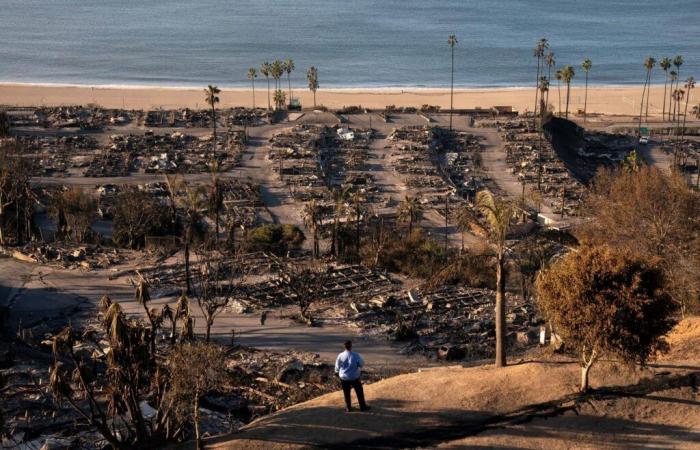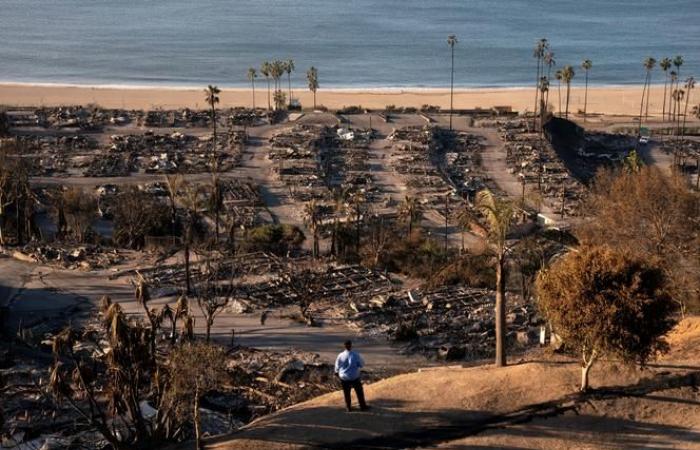November 5, 1913 gave rise to a considerable celebration in Los Angeles. More than 30,000 residents rushed to the San Fernando Valley to witness, live, the arrival of water from the eastern Sierra Nevada. The city inaugurated the aqueduct which would bring it water from the Owens River, after a 230 kilometer route dug by 100,000 men through canyons and desert. The crowd praised William Mulholland, author of such a technological feat, as a triumph. Today, Mulholland Drive, the legendary avenue that bears the engineer’s name, is cut off by flames.
Read later
The following decades showed the cost of this misappropriation of nature. Owens Lake dried up, releasing toxic dust; no vegetation any longer opposed the winds. But, thanks to water, Los Angeles has become a megalopolis as vast as Belgium, at the forefront of « car culture »hedonism, cinematic dream and, politically, of the conservative revolution. Before Ronald Reagan, President of the United States from 1981 to 1989, tax critic Howard Jarvis launched the taxpayer revolt in 1978 against public spending and the role of the State. A philosophy whose legacy California is paying for today.
You have 89.44% of this article left to read. The rest is reserved for subscribers.
Belgium







